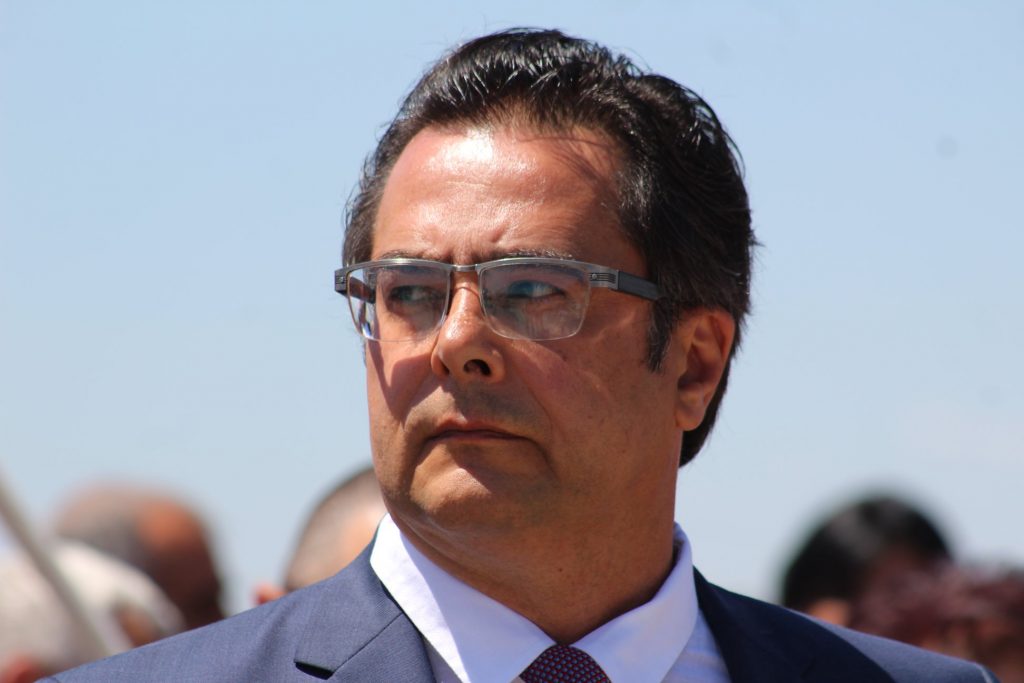'Immediate release of Armenian POWs' and other provisions of the PACE resolution
PACE adopts resolution on the second Karabakh war
On September 27, when the parties to the Karabakh conflict commemorated the anniversary of the outbreak of the war, the Parliamentary Assembly of the Council of Europe adopted a resolution “Humanitarian consequences of the Armenian-Azerbaijani conflict”.
The report of the same name was prepared by Irish MEP Paul Havan based on information collected during his visits to Armenia and Azerbaijan.
Both the report and the resolution adopted on its basis relate to critical issues that remain unresolved after the end of hostilities in Karabakh and the signing of the armistice document.
In particular, the resolution contains provisions on responsibility for unleashing a war, on war crimes in the course of hostilities, as well as on keeping prisoners of war and missing persons after their cessation. The document also refers to the use of Syrian mercenaries by Azerbaijan during the war, concerns about incidents on the Armenian-Azerbaijani border and the destruction of the Armenian cultural heritage.
The delegations of Azerbaijan and Turkey voted against, but the resolution was adopted with 47 votes in favor.
Briefly about the provisions of the resolution adopted by PACE, as well as expert opinion from Armenia on how events can develop further and what consequences the document may have.
- Another land: Nagorno-Karabakh one year after the war
- One year since the second Karabakh war – all main events in one video
- PM of Armenia: Karabakh conflict cannot be considered settled
Resolution provisions
Ruben Rubinyan, head of the Armenian delegation to PACE, was the first to report on the adoption of a resolution on the humanitarian consequences of the conflict between Azerbaijan and Armenia on his Facebook page.
He stressed that despite Azerbaijan’s attempts to “exclude the name of Nagorno-Karabakh from international documents” and similar calls from the UN rostrum by the president of this country, the Armenian side managed to ensure that the words “Nagorno-Karabakh conflict” were included in the title of the resolution.
According to Rubinyan, the resolution contains a number of provisions important for Armenia. Here is some of them:
• The Assembly notes that both Armenia and Azerbaijan joined the Council of Europe in January 2001 and pledged to resolve the conflict exclusively by peaceful means. Consequently, the six-week war in 2020 is a violation of these commitments and an appropriate response from the Council of Europe must follow.
• The Assembly believes that the purpose of the eighth article of the trilateral statement [on the cessation of hostilities in Karabakh, signed by the heads of Armenia, Azerbaijan and Russia in November 2020 – JAMnews] is to exchange all prisoners, regardless of the status attributed to them by the parties to the conflict [the Azerbaijani side declares Armenian prisoners saboteurs – JAMnews].
• The Assembly calls on the Azerbaijani authorities to immediately release all prisoners of war and other detainees and return them to Armenia.
• The Assembly calls on the European Committee for the Prevention of Torture (CPT) to make an extraordinary visit, despite the regular access to the captives by representatives of the International Committee of the Red Cross.
• The Assembly cites alarming evidence that Azerbaijan, with the assistance of Turkey, used Syrian mercenaries during the war.
• The Assembly condemns the destruction of the Armenian cultural heritage in Azerbaijan over the past 30 years, in particular in the Nakhichevan Autonomous Republic and ondemns the deliberate damage done to the Armenian cultural heritage during the last war.
• The Assembly considers the Baku “War Booty Park” a cause for serious concern. The use of cartoons and mannequins of a stereotypical nature exacerbates the degree of intolerance and cannot have a place in society or in museums.
• The Assembly expresses concern over the obstruction of the entry of international humanitarian organizations into Nagorno-Karabakh and calls for facilitation of their visits.
Expert opinion

Political scientist Andrias Ghukasyan considers third provision to be te most important of the resolution, according to which the Council of Europe will consider the issue of responsibility for unleashing a war:
“The war was not started by Armenia, therefore it is not difficult to predict that recognition as an aggressor is inevitable for Azerbaijan – with all the ensuing consequences. Azerbaijan should be deprived of everything that it has achieved by military means. Achievements gained through aggressive actions are rejected by the international community”.
The political scientist even suggests the possibility of returning to the Armenian side the territories of Nagorno-Karabakh, lost as a result of the war:
“And this creates a political platform for the international community to deploy its peacekeeping forces in the region, thereby guaranteeing lasting security for Armenians and Azerbaijanis”.
On September 23, from the UN rostrum, Azerbaijani President Ilham Aliyev accused Armenia of attacking Azerbaijan on September 27 and provoking a war. According to Andrias Ghukasyan, a completely different position is stated in the resolution adopted by the PACE, moreover, the European structure also evaluates the role of Turkey in the course of hostilities differently. While Aliyev, in his speech from the rostrum, said that during the war, Turkey provided only political support to Azerbaijan.
According to the political scientist, the demands of the resolution adopted by the PACE are insurmountable for Aliyev. He even doubts that Azerbaijan will retain its membership in the Council of Europe.
According to Andrias Ghukasyan, the political assessment of the fact that Azerbaijan unleashed the second Karabakh war will not keep itself waiting long:
“And this gives reason to believe that in 2022 Azerbaijan will be recognized as an aggressor, and the issue of Ilham Aliyev’s personal responsibility will be referred to the International Criminal Court. And by the end of the year there will be a need to deploy international peacekeeping forces in the region”.


















